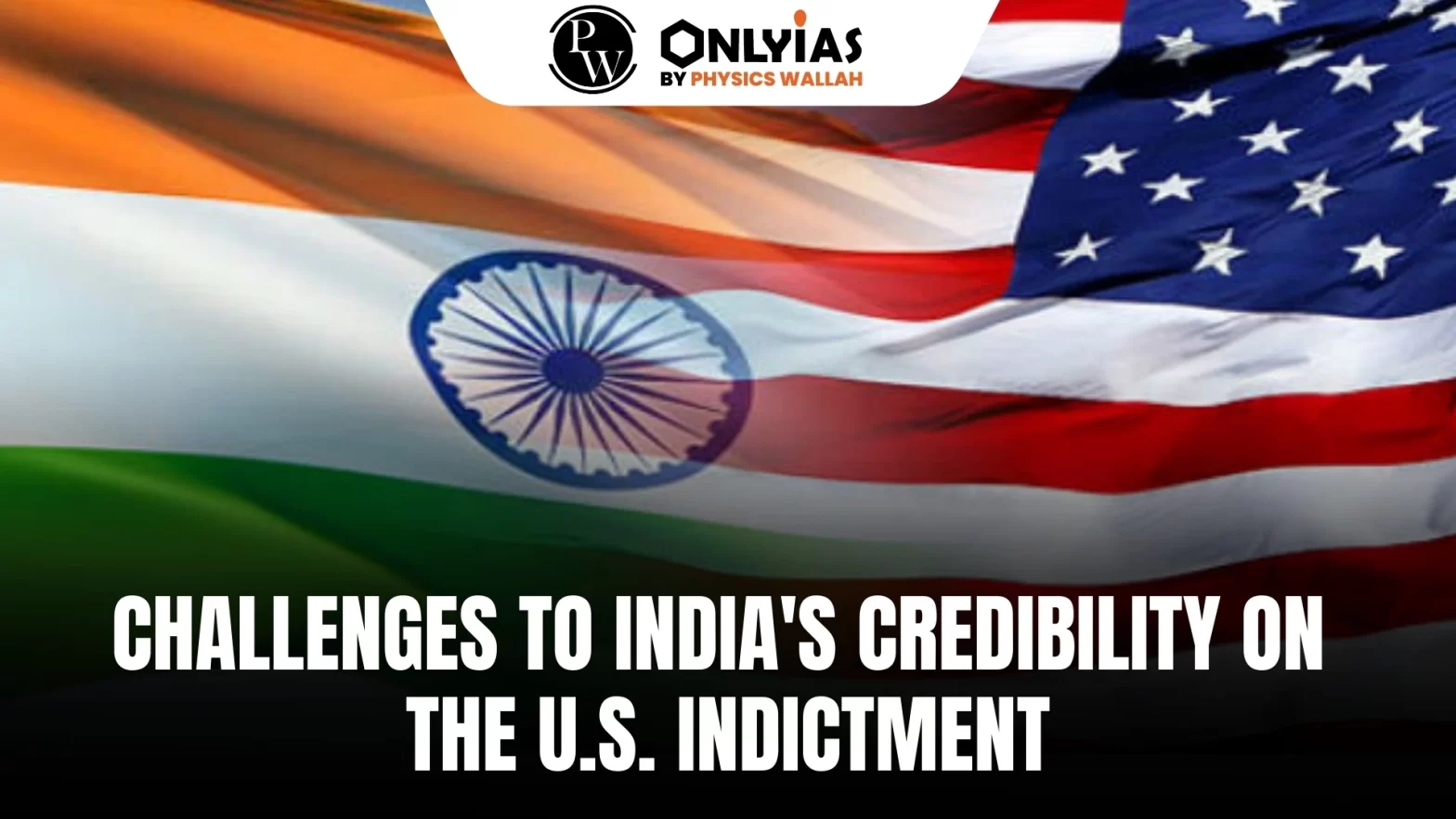Context: This article is based on an Editorial “A dark shadow on New Delhi’s credibility” Which was published in the Hindu. The recent publication of a United States Department of Justice indictment against India for targeting wanted Khalistani separatists in North America.
- To deal with this situation, would be a testament of India’s credibility in terms of both covert capacity and public messaging, which must be addressed.
What concerns are currently arising in India-US relations?
- Lack of Trust: These such cases and attitudes indicate that while bilateral ties and strategic ties are growing in different spheres, trust between both countries has not kept at pace.
- Impact on International Relations: Trust issues in intelligence-sharing would impact not only India-U.S. relations but also impact the relations and trust with western allies including the “Five Eyes” intelligence partnership (Australia, Canada, New Zealand, the U.K. and the U.S.).
- Double Standards:
- By India: While rejecting Canadian allegations outright, India accepted the U.S.’s allegations more calmly and set up a high-level inquiry to investigate them.
- By Western Countries: There is a well-recorded double standard from the West when it comes to extra-judicial covert operations and assassinations.
- Examples: The CIA, MI6 and Mossad have often eliminated their threat on foreign shores, while against Russia (Skripal attacks), Saudi Arabia (Khashoggi killing), and publicly shaming India (alleged claims on Mr. Pannun and Nijjar).
- On Information Sharing: The U.S. does not trust the information that India has shared on Mr. Pannun, Nijjar and the Khalistani separatist movement.
- For India, the U.S.’s actions are a breach of trust.
- Historical Precedents: Despite various high-levels of meetings, the U.S. appears to have cautioned India, but not revealed the full extent of information it had gathered.
- Earlier Instances: The U.S. warned India about the impending 26/11 terror threat without disclosure of source and forcing the Indian government to use video-camera for the trial is showing lack of trust in cooperation.
Also Read: Fifth Annual India-U.S. 2+2 Ministerial Dialogue
What controversial operation in the limelight?
- The forcible return of a United Arab Emirates princess, Latifah, by the Indian Coast Guard in international waters in 2018 that has been criticized by a court in the United Kingdom.
- The “attempted kidnap” of businessman-on-the-run Mehul Choksi from Antigua to Dominica by British nationals alleged to have been working for Indian agencies in 2021.
- The conviction of eight former Indian naval officers in Qatar for espionage, which is now on appeal.
- The extra-judicial military court trial against former Indian naval officer Kulbhushan Jadhav in Pakistan since 2016 has been challenged by India at the International Court of Justice (ICJ).
The Path Ahead:
- Address Concerns: India must address the impact of the case on the neighborhood.
- India needs to address the concerns about Indian agencies’ activities in South Asian nations.
- Transparent Investigation: It would help in addressing credibility concerns.
- The Ministry of External Affairs has said that covert, extra-judicial assassinations are not the government’s policy and that the allegations will be investigated.
Conclusion:
The lasting impact of the episode will lie in the image India wishes to project to the world — as a “hard power” or a “soft power”.
| Mains Question (2020): The Indian diaspora has a decisive role to play in the politics and economy of America and European Countries. Comment with examples. |
![]() 5 Dec 2023
5 Dec 2023

